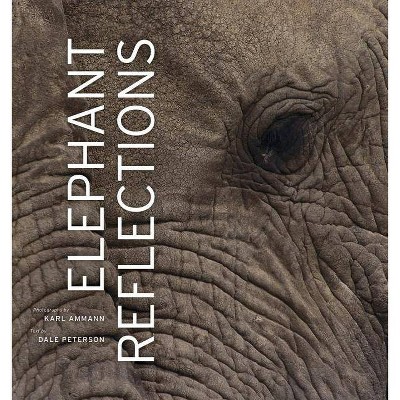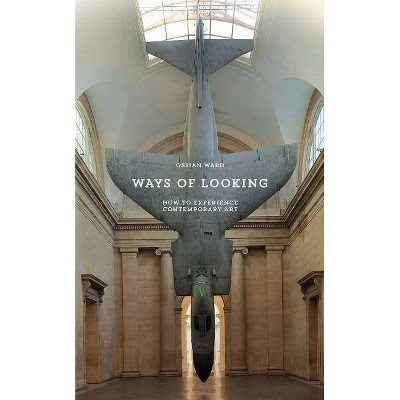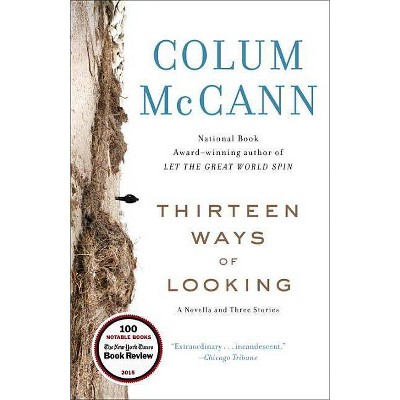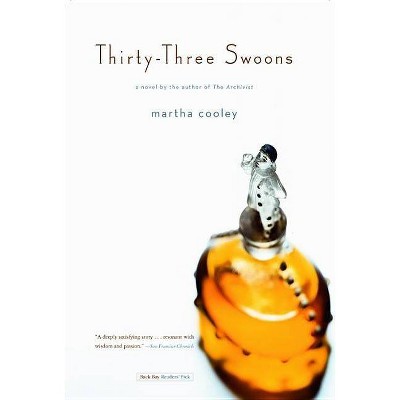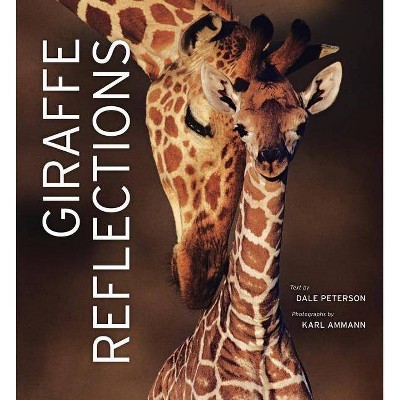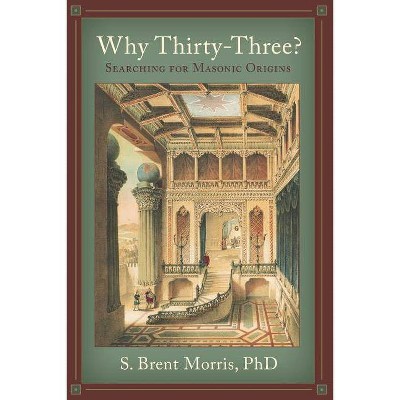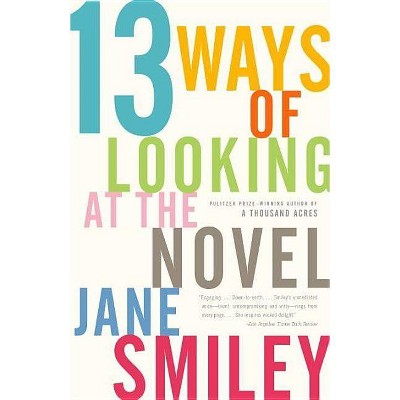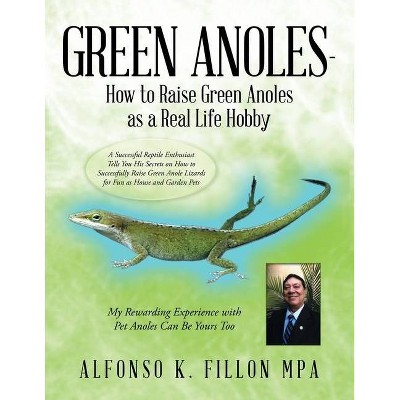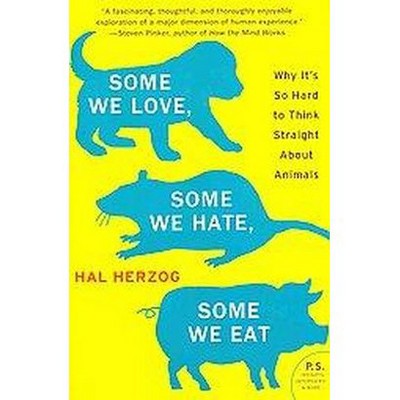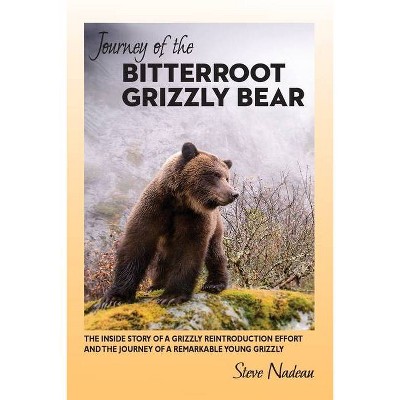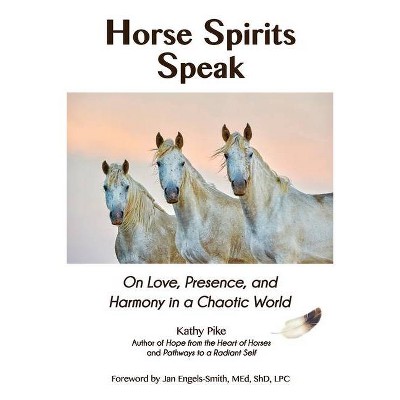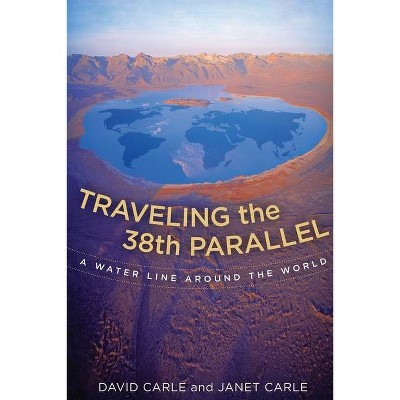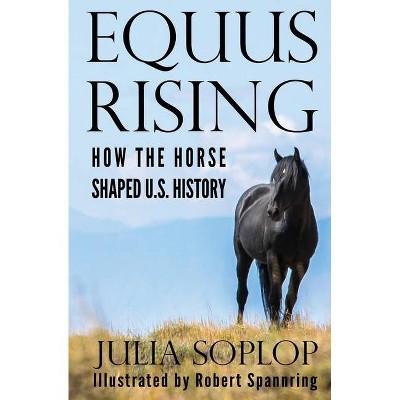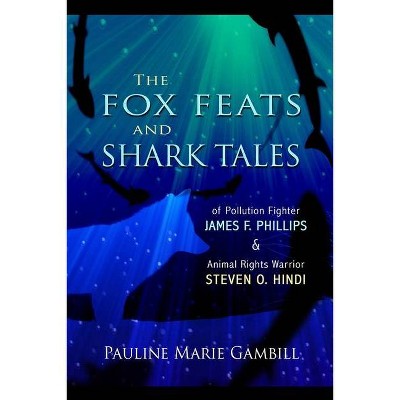Thirty-Three Ways of Looking at an Elephant - by Dale Peterson (Paperback)
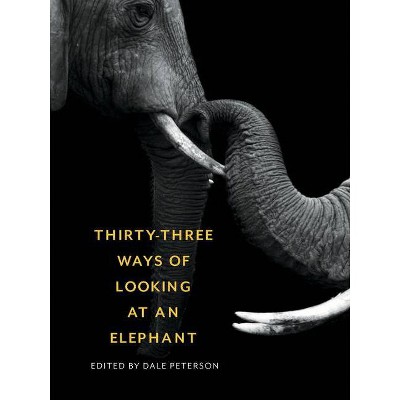
Similar Products
Products of same category from the store
AllProduct info
<p/><br></br><p><b> About the Book </b></p></br></br><b>From trunk to tail, these thirty-three essential historical, scientific, and cultural writings on the elephant range from folktales to current practices, creating a greater understanding of this creature.</b><p/><br></br><p><b> Book Synopsis </b></p></br></br>Elephants have captivated the human imagination for as long as they have roamed the earth, appearing in writings and cultures from thousands of years ago and still much discussed today. In <i>Thirty-Three Ways of Looking at an Elephant</i>, veteran scientific writer Dale Peterson has collected thirty-three essential writings about elephants from across history, with geographical perspectives ranging from Africa and Southeast Asia to Europe and the United States. An introductory headnote for each selection provides additional context and insights from Peterson's substantial knowledge of elephants and natural history. <p/>The first section of the anthology, "Cultural and Classical Elephants," explores the earliest mentions of elephants in African mythology, Hindu theology, and Aristotle and other ancient Greek texts. "Colonial and Industrial Elephants" finds elephants in the crosshairs of colonial exploitation in accounts pulled from memoirs commodifying African elephants as a source of ivory, novel targets for bloodsport, and occasional export for circuses and zoos. "Working and Performing Elephants" gives firsthand accounts of the often cruel training methods and treatment inflicted on elephants to achieve submission and obedience. <p/>As elephants became an object of scientific curiosity in the mid-twentieth century, wildlife biologists explored elephant families and kinship, behaviors around sex and love, language and self-awareness, and enhanced communications with sound and smell. The pieces featured in "Scientific and Social Elephants" give readers a glimpse into major discoveries in elephant behaviors. "Endangered Elephants" points to the future of the elephant, whose numbers continue to be ravaged by ivory poachers. Peterson concludes with a section on literary elephants and ends on a hopeful note with the 1967 essay "Dear Elephant, Sir," which argues for the moral imperative to save elephants as an act of redemption for their systematic abuse and mistreatment at human hands. <p/> Essential to our understanding of this beloved creature, <i>Thirty-Three Ways of Looking at an Elephant</i> is a must for any elephant lover or armchair environmentalist.<p/><br></br><p><b> Review Quotes </b></p></br></br><br>An illuminating collection...Will strike a chord with readers fascinated by the mysteries of the animal kingdom, and by humans' commonality with other species." -- <b><i>Publishers Weekly</b></i> <p/>Elephants are amazing beings. They're really smart and have legendary memories; are deeply emotional, compassionate, and empathic; and form and maintain strong family ties for generations on end. This landmark book shows just how special these mammoths truly are. It's a game-changer for sure." -- <b>Marc Bekoff, author of <i>The Animals' Agenda: Freedom, Compassion, and Coexistence in the Human Age</i></b> <p/>"A thoughtfully crafted and valuable resource for ethnozoologists and animal lovers more widely. From accounts of the trained elephants of the ancient Mediterranean to tales of the First Indochina War's anticolonial elephant-human duos, from essays on elephants' complex emotional lives to critical looks at the elephant ivory trade, this elegant and fascinating book offers a broad sampling of how both elephant species groupings--Asian and African--have interacted with human cultures over the last several millennia." -- <b>Jacob Shell, author of<i>Giants of the Monsoon Forest: Living and Working with Elephants</b></i> <p/>"To know what our species is like, read this book about elephants. I swear by all that's holy that no book like it has ever appeared before. It will leave you gasping, sometimes with pleasure, other times with unimaginable horror. It's carefully, beautifully presented, brimming with accuracy, and so utterly fascinating that you cannot put it down." -- <b>Elizabeth Marshall Thomas, author of <i>The Hidden Life of Life</b></i> <p/>A must-have treasure for anyone who loves elephants--and who doesn't? Humorous, heartbreaking, and revelatory, it contains a pachyderm's worth of facts, stories, and wisdom. -- <b>Sy Montgomery, author of <i>How to Be a Good Creature </b></i><br><p/><br></br><p><b> About the Author </b></p></br></br><b>Dale Peterson's</b> twenty previous books have been named Best of the Year by the <i>Boston Globe</i>, the <i>Denver Post</i>, <i>Discover</i>, the <i>Economist</i>, the <i>Globe and Mail</i>, <i>Library Journal</i>, and the <i>Village Voice</i>. Two titles have been honored as Notable Book of the Year by the <i>New York Times</i>. Peterson is the author of the definitive biography <i>Jane Goodall: The Woman Who Redefined Man</i>, as well as <i>Elephant Reflections</i>, <i>Giraffe Reflections</i>, <i>The Moral Lives of Animals</i>, and <i>The Ghosts of Gombe</i>. With Jane Goodall, he coauthored <i>Visions of Caliban: On Chimpanzees and People</i>, and he is coeditor, with Marc Bekoff, of <i>The Jane Effect: Celebrating Jane Goodall</i>, published by Trinity University Press. A former fellow at the Radcliffe Institute for Advanced Study at Harvard University, Peterson teaches at Tufts University and lives in Arlington, Massachusetts.
Price History
Cheapest price in the interval: 20.99 on October 22, 2021
Most expensive price in the interval: 20.99 on December 20, 2021
Price Archive shows prices from various stores, lets you see history and find the cheapest. There is no actual sale on the website. For all support, inquiry and suggestion messagescommunication@pricearchive.us
